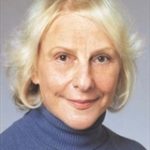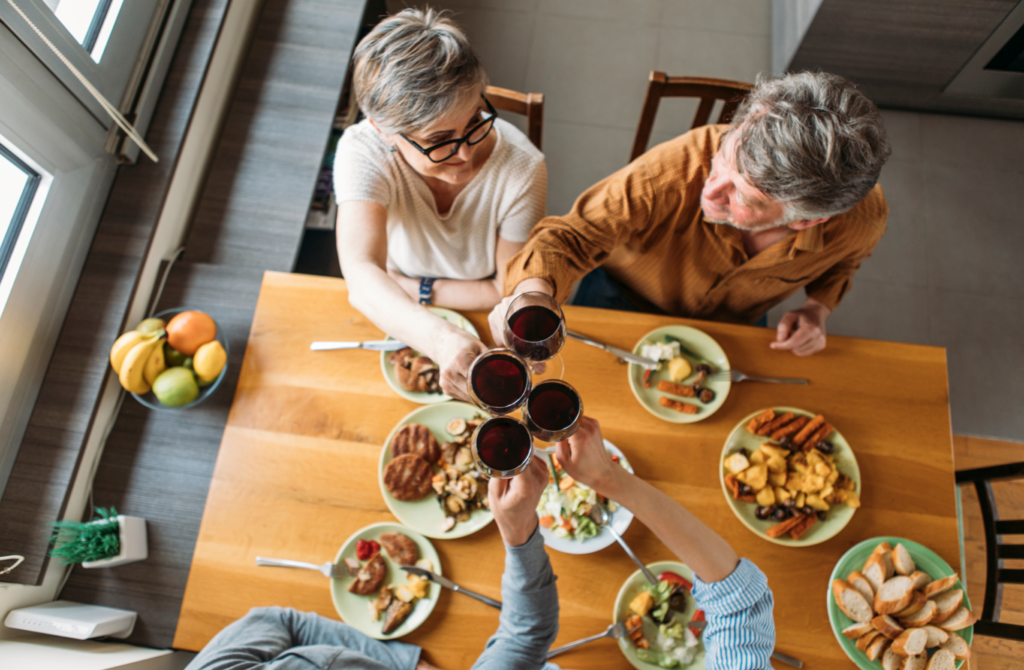This article is a guest post written by Harriet Pappenheim, founding therapist of Park Avenue Relationship Consultants in New York City. We’re very proud to have Harriet contributing to the Stitch blog. If you’d like to hear more from Harriet you can find out more about her here.
A Guide to Dating after 50
In many ways, dating in your 50s and beyond is no different than at any other time. It’s still all about meeting someone new and seeing if you click emotionally, mentally, and physically. You may feel that familiar awkwardness, nervousness and self-consciousness that comes with putting yourself out there. Same for the positive experiences that make us want to date in the first place: the sense of adventure, excitement, and that particular magic of connecting with someone special.
On the other hand, some elements of dating in your 50s or later will be a bit different to the last time around. It has both its advantages and its challenges – here’s how to tackle it all.
The Advantages
In some senses, those of us over the age of 50 are better equipped to date than our younger counterparts. We have a deep sense of what’s important in a relationship. We have had the opportunity to reflect on past relationships and detect patterns. We are more likely to have stability in our finances and in our career. In short, individuals who have been through unsuccessful relationships in the past have usually had time to figure out what they want from their future. And they are less likely to waste time.
One of my clients, Kate (name changed), had two decades in her previous marriage to discover her true priorities. Her ex was shy, introverted, and closed off. After years of growing apart, she understood that she wanted a relationship with someone outgoing, spontaneous, and open.
After her marriage ended, she took some time to get her bearings and enjoy being single. “I never lived alone before,” she said, “and I love it.” But when she was ready to get back in the game, success came quickly. “I didn’t like the idea of online dating. Honestly, some of these guys were just not my type. But I knew what I was looking for. I thought, ‘I’ll give it one more shot.’ That’s when she met James and their relationship flourished. “He was everything I wanted,” Kate said. “I knew it when I saw it”. They were married less than a year later.
There are a few lessons to learn from Kate’s story. First, think about your goals for your next relationship before you start dating. Second, dating later in life is a chance to get right what you did not get right the first time. It’s a chance to avoid what made you unhappy and seek out who wants what you do. Third, whether or not you believe in “soul-mates,” the person you’re looking for is out there. After all, according to the 2009 census, 96 million Americans are single, and 32% of them are over 50. That’s 30.7 million people in your dating pool.
The Challenges
While people aged 50 and above have a lot working in their favor when it comes to dating, many of my clients also face challenges particular to their age group. It’s undeniable that society places a stigma around dating as an older adult. Wherever you look in our culture—movies, music, ads—it’s all about young love. As a result, it can be downright scary to get your feet wet again. We can think that love is not for us, that all the good ones are taken, or that our attempts are doomed to fail. This nagging inner voice can be a big obstacle.
There’s another huge fear that comes with getting back in the game: self-consciousness about one’s physical appearance. Individuals that haven’t dated in years might think they look too old, which makes it just plain scary to go on dates. Men in their 50s or above tend to have related fears about their sexual prowess.
Then there’s the almighty B-word. I’m talking about baggage. Everybody brings some to the table. Whether it’s a divorce, widowhood, or a life of being single, your past shapes how you perceive the present and the future.
A client named Richard (name changed) was embittered by his previous marriage. His conviction that his ex had been dishonest, manipulative, and scheming continued to shape his attitude. He was suspicious of new women he met on dates, worried about their ulterior motives. As a result he remained closed and cautious. He had a hard time establishing a relationship.
In the end though, that caution served him well. He waited to find someone who he could completely trust; because of his past, trust was incredibly important to him. He also didn’t rush to remarry—and he still hasn’t. For now, he’s happy and comfortable in a serious, unmarried relationship.
Both the clinical research and experience indicate that the advantages outweigh the challenges. With the support of friends and family (or a professional relationship therapist in some cases), these challenges are manageable. Usually, both people on a date find out pretty quickly that the other person is just as nervous as they are. After a few dates, most people relax and fall back on the best advice—be yourself.
How To Get Started
Convinced? To start meeting people, look to expand your circle of contacts. If you feel comfortable enough to do so, tell your family and friends you’re dating. Let them introduce you to others. Think about taking a class, going to a lecture, or volunteering. Accept invitations to weddings and events.
The other factor is online dating. I see it as a tremendous opportunity. Overall, it has the effect of letting you meet many more people in a much low-pressure environment than traditional dating, particularly on sites like Stitch which are creating new ways for members over 50 to connect which go beyond just going on dates.
So get out there! Use your experience to find the relationship you’re meant to have!
 Harriet Pappenheim, LCSW, BCD, has over 30 years’ experience in relationship and couple therapy, helping couples and individuals find a deeper content and personal fulfilment in their relationships. She is a founding therapist of Park Avenue Relationship Consultants (PARC), a group of expertly trained clinicians based in NYC, specializing in couples therapy, family therapy and marriage counseling: http://parkavenuerelationshiptherapy.com/.
Harriet Pappenheim, LCSW, BCD, has over 30 years’ experience in relationship and couple therapy, helping couples and individuals find a deeper content and personal fulfilment in their relationships. She is a founding therapist of Park Avenue Relationship Consultants (PARC), a group of expertly trained clinicians based in NYC, specializing in couples therapy, family therapy and marriage counseling: http://parkavenuerelationshiptherapy.com/.
Harriet is the author of For Richer For Poorer: Keeping Your Marriage Happy When She’s Making More Money . She has also been featured on national radio, Good Morning America and the Today Show. Harriet can be reached by calling 212.289.0295 or through the PARC website at http://parkavenuerelationshiptherapy.com/contact-us/.




